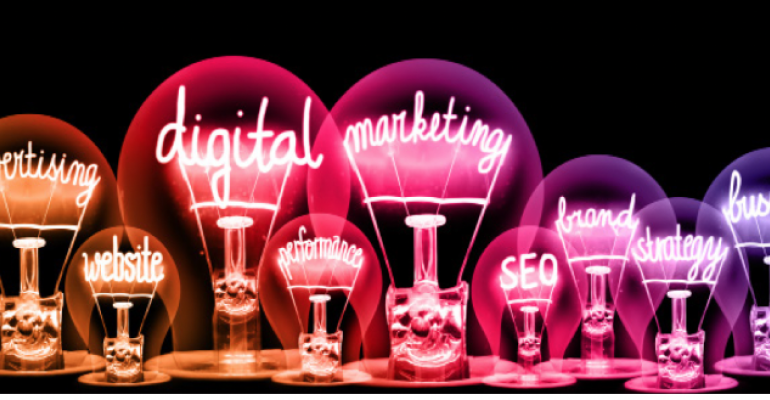Can we all agree that 2020 was the worst? Instantly shutting our doors and managing a season’s worth of canceled events was nothing short of horrifying.
As we juggled our new roles: therapists to clients, teachers to our children, and round-the-clock personal chefs to our families, we waded through poorly-built government websites, confusing forms, and rapidly changing requirements, desperately trying to secure PPP and EIDL loans that could save the businesses we worked so hard to build.
Like I said: the worst!
Now as the industry makes its first tentative steps toward real recovery, a simple retrospective is in order. Three key transformations will change how you market your business from here on out. I’ll let you decide if they are for better or worse.
*Everyone* is online
The pandemic forced even the most ardent luddites to get online. From remote work to online grocery shopping, folks of all ages shifted to a digital-forward life in 2020.
The end result: People of all ages are comfortable conducting business online. Therefore, your online presence is more important to your success than ever before. Optimize your website. Your website and social channels need to be more than brochures and a place to get info. They need to be places for people to do business with you.
- Digitize + automate contracts and invoicing: It’s time to leave behind the paper trail in favor of digital receipts. With online contracts and invoicing, you effectively save time for yourself and your clients. You’ll get paid faster and spend less time chasing down late payments, while your clients enjoy the ease of signing and paying with the tap of a finger.
- Keep using Zoom: Shorten meeting times and cut travel and refreshment expenses by shifting client meetings and sales calls to Zoom. Bonus tip: Record video updates on Loomly to avoid unnecessary meetings altogether! Clients are used to video conferencing and messaging, so don’t worry that remaining virtual will appear unprofessional. The game has truly changed, so use it to your advantage.
Consumers are more privacy conscious
Okay, maybe it’s tech companies that are more privacy conscious and consumers are simply rejoicing. Nevertheless, new consumer privacy acts in the EU and California, as well as Apple’s new IOS 14 update, set a modern standard for online consumer privacy.
What this means for you is the golden age of easy ad targeting is over. The newest change in the battle for consumer privacy is served with Apple’s new iOS 14, which makes it harder than ever to track and retarget web traffic.
What does this mean for you? Briefly: May the best copywriter and content creator win! We are in a position where the fundamentals of marketing are at play again. You need to attract the right audience with the right messages at the right time, without any funny business that violates consumer privacy.
Things to consider:
- Dig your well before you’re thirsty. Start your marketing and advertising early. You cannot rely on algorithms and machine-learning to do your work for you. Instead, you’ll need to start by finding qualified audiences and warming them up earlier through intentional posting, as well as top- and mid-funnel ads.
- Get comfortable with instability. Ad costs wildly fluctuated during the pandemic and will continue to do so. Expect ad costs to continue to rise this year and accept that you’ll need to remain flexible for some time.
- Get on board with standard privacy requirements. Privacy is top-of-mind. Consumers welcome it and when you demonstrate that their privacy is important to you, you will earn their trust. Show how you value privacy by complying with local and international privacy laws, highlighting your commitment to their security.
Stay nimble & prepare for the worst
The reality is that we are not yet out of the woods with the pandemic. Even if we are, I’m sure you can imagine all sorts of other disasters befalling the industry, whether it’s a new variant or a natural disaster.
Too many event pros were regretfully reminded of the adage, “an ounce of prevention is worth a pound of cure,” as they combed through their internet-downloaded contracts searching for a miracle in the force majeure clause. The best prevention is to stay nimble and have a plan for the worst.
Things to consider:
- Revisit your contract. Make sure you are covered. Businesses, consumers, and the legal profession have all learned a powerful lesson about contracts and unforeseen disasters. The force majeure that protected you pre-COVID may not provide as much coverage now. Contact a lawyer and go over your contract with an eye on protecting you and your business in all sorts of situations.
- Revisit communication policies. Maybe you had an iron-clad contract that protected you legally, but it certainly doesn’t protect you from being thrashed in the court of public opinion. Mitigate any damage to your reputation when you enforce a contractual clause by having a solid communication plan, both internally for handling client needs and externally for responding to online criticism.
- Revisit your workflows. If you must postpone events and rework contracts, be sure to have backup plans in place before you need them. During the first wave of shutdowns in 2020, clients and event pros alike scrambled to figure out whether to cancel or postpone. Have all your contingency and backup plans in place before you need them.
COVID has changed the event industry in fundamental ways, but that doesn’t mean you can’t thrive in a post-pandemic world. In fact, the lessons we’ve learned from the pandemic could set us up to successfully survive any disaster that befalls us in the future.





